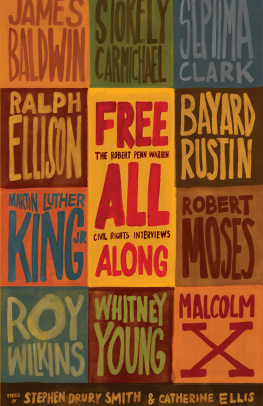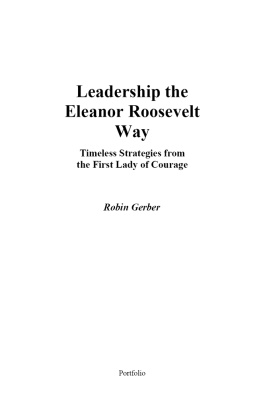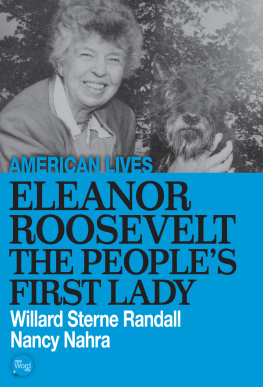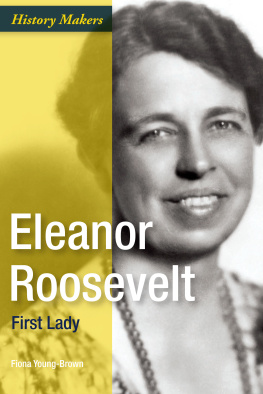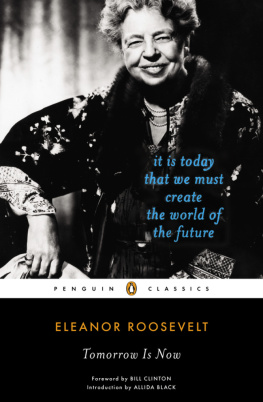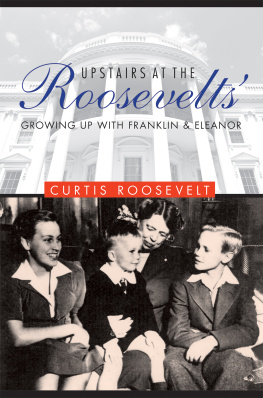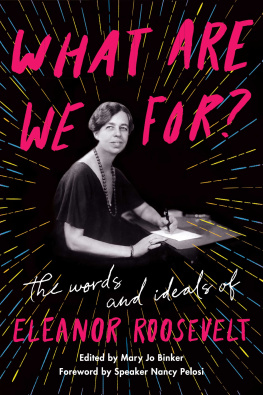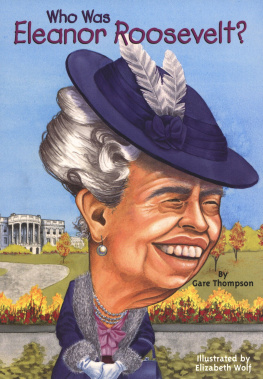The First Lady of Radio
ALSO BY STEPHEN DRURY SMITH
After the Fall: New Yorkers Remember
September 2001 and the Years That Followed
(co-edited with Mary Marshall Clark, Peter Bearman, and Catherine Ellis)
Say It Loud! Great Speeches on Civil Rights and African American Identity
(co-edited with Catherine Ellis)
Say It Plain: A Century of Great African American Speeches
(co-edited with Catherine Ellis)


2014 by Stephen Drury Smith
All rights reserved.
No part of this book may be reproduced, in any form, without written permission from the publisher.
Requests for permission to reproduce selections from this book should be mailed to: Permissions Department, The New Press, 120 Wall Street, 31st floor, New York, NY 10005.
Published in the United States by The New Press, New York, 2014
Distributed by Perseus Distribution
ISBN 978-1-62097-049-2 (e-book)
CIP data available
The New Press publishes books that promote and enrich public discussion and understanding of the issues vital to our democracy and to a more equitable world. These books are made possible by the enthusiasm of our readers; the support of a committed group of donors, large and small; the collaboration of our many partners in the independent media and the not-for-profit sector; booksellers, who often hand-sell New Press books; librarians; and above all by our authors.
www.thenewpress.com
Composition by dix!
This book was set in Adobe Garamond
2 4 6 8 10 9 7 5 3 1
For Kate
Contents
Many people have supported the public radio documentary project that also gave rise to this anthology. I want to thank my colleagues at American Public Media and its documentary unit, American RadioWorks. I am indebted to the staffs at several archives, including the Franklin D. Roosevelt Library, the Library of Congress, the National Archives and Records Administration, the Library of American Broadcasting at the University of Maryland, and the Special Collections department of the University of WisconsinMadison Libraries. For help with the manuscript, I am grateful to historians Maurine Beasley and Brian Horrigan, and intern Minna Zhou.
The transcripts for this book were primarily drawn from typewritten radio scripts in the Eleanor Roosevelt papers collection at the Franklin D. Roosevelt Library in Hyde Park, New York. Many of the transcripts are reproduced virtually verbatim, with small changes to include handwritten revisions or to make punctuation meant for the ear work better for the eye. Whenever possible, the archival scripts have been checked against recordings of the broadcasts to ensure accuracy. But recordings for many of the programs were never made or did not survive. Scripts often got changed at the last minute and ER was also known to extemporize on occasion. In some instances an authoritative, post-broadcast transcript was produced by either the network or the sponsoring ad agency.
A few of the transcripts have been edited to eliminate tangential material. A few words have been added in brackets to provide context. This anthology is not intended to be a mechanical reproduction of the original scripts. Most of the scripts can be found in the Speech and Article File of ERs papers at the FDR Library.
Where possible, I have included some of the original advertising copy, announcer continuity, and musical cues in the first selection from a given commercial series. This is meant to provide a richer sense of how the radio broadcast sounded.
As we contemplate the global challenges and conservative backlash against all liberal policies, Eleanor Roosevelt emerges ever more clearly as the Voice of the Century. She was a steadfast progressive, an anti-racist visionary for democracywhich she defined as political and economic opportunity with equal justice for all. In her columns, articles, and broadcasts, ER was specific: to achieve democracy, America required movements for change which would insure decent housing, adequate health care, excellent education for allacross all differences and divides, women and men in equal measure.
Since the issues she addressed as First Lady with her unique and inspiring vision are once again the most urgent issues of our time, Stephen Drury Smiths splendid collection of Eleanor Roosevelts radio transcripts are important and generative. Independent and bold, even competitive, ER was in part FDRs political partner. She sought to enhance her husbands efforts, and build support for his best visions. When they disagreed and she sought to move him further, she wrote about or broadcast alternatives. As the First Lady of Radio, ER was full of surprises. She welcomed controversy, told secrets, revealed intimacies, and was generally more blunt than reserved. She had flair and a grand sense of humor, shared astonishing details of White House life, interviewed activists and workers, spoke clearly about refugees and race.
Justice Thurgood Marshall called her Lady Big Heart because of her commitment to civil rights over many decades. Indeed, her first dramatic speech for universal quality education without discriminationaddressed to educators who had just condemned segregation at the National Conference on Fundamental Problems in the Education of Negroes in Washington on May 11, 1934is included in this volume.
Delighted by the resolution, which called for a New Deal for all children and had passed unanimously, ER strode upon the stage to confirm her support: I noticed in the papers this morning the figures given of the cost in certain states per capita for the education of a colored child and of a white child, and I could not help but think... how stupid we are. Since democracy depends above all on an educated citizenry, a literate, informed, and concerned people, we should really bend our energies... to giving to children the opportunity to develop their gifts... to the best that is in them. Excellent education was, for ER, a matter of national preservation:
To deny any part of a population the opportunities for more enjoyment in life, for higher aspirations, is a menace to the nation as a whole. There has been too much concentrating wealth, and even if it means that some of us have got to learn to be a little more unselfish... we must realize that it will profit us all in the long run.... I think the day of selfishness is over; the day of really working together has come, and we must learn to work together, all of us, regardless of race or creed or color; we must wipe out, wherever we find it, any feeling... of intolerance, of belief that any one group can go ahead alone. We go ahead together or we go down together.
Community responsibility to ensure excellent education, decent affordable housing with gardens and playgrounds, and quality health care for all remained ERs abiding themes, which were intensified and internationalized during the war. They defined democracy and the need to build a world peace movementissues she addressed in all her broadcasts. She rejected greed and bigotry, fear and pettiness, as she pursued a new understanding to build a future of domestic amity and world peace. While bombs exploded, homes were rendered rubble, international borders became meaningless, and limitations regarding womens work and responsibilities ended. As public schools close across the nation and hard-won victories for womens health rights and citizen voting rights are canceled, ERs words resound with urgency. With this amazing collection, we have the path to ERs healing vision: our survival depends on wars end. We must learn to respect, honor, even to love each other, and recognize that our human family inhabits one connected communitydedicated to liberty, justice, and human rights.
Next page

